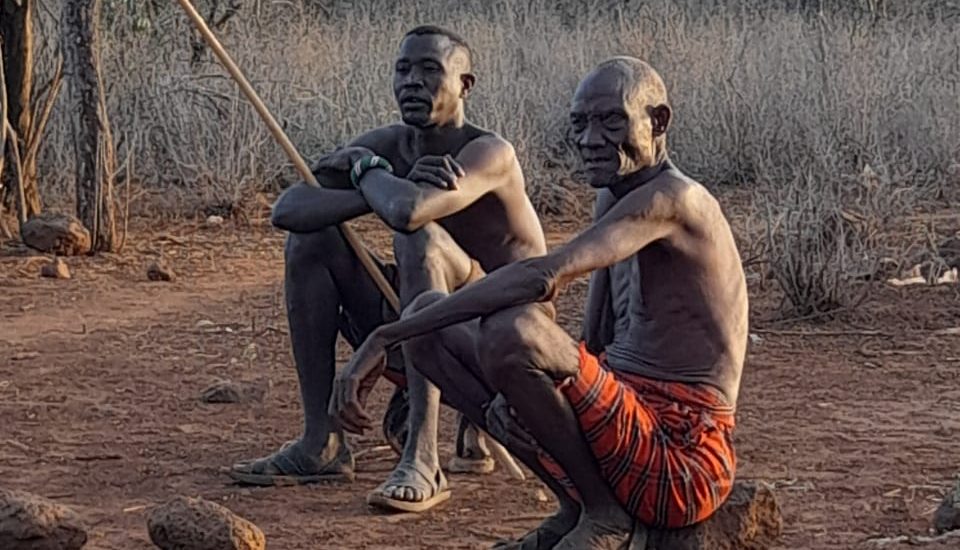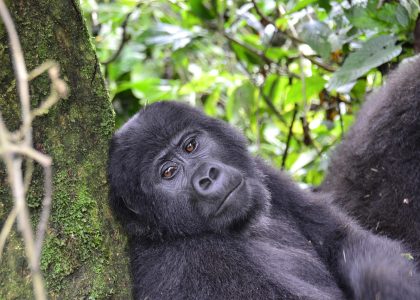Continuing our Wazimba Travel Kenya series, we invite you to explore beyond the spectacular landscapes and wildlife to discover Kenya’s true heart—its people. With over 42 distinct ethnic communities, each with their own languages, traditions, and cultural expressions, Kenya offers some of Africa’s most authentic and meaningful human connections. These cultural encounters often become the unexpected highlights of our guests’ journeys, transforming a vacation into a profound life experience.
Maasai Village Visits: Beyond the Tourist Show
The iconic image of red-clad Maasai warriors jumping high against the savannah backdrop has become almost synonymous with Kenya. While many tourists experience only brief, choreographed village visits, Wazimba Travel has cultivated long-standing relationships with Maasai communities that allow for more genuine interactions.
Our Approach to Maasai Cultural Experiences:
- We partner exclusively with community-owned cultural manyattas where tourism revenue directly benefits local families
- Visits are arranged during non-peak hours to ensure more personal interactions
- Our guides—many of Maasai heritage themselves—provide cultural context and translate conversations with community members
- We encourage questions and genuine dialogue rather than passive observation
In the Mara region, we’ve established a special relationship with the Nashulai Maasai Conservancy, Kenya’s first community-owned conservancy. Here, guests can participate in daily activities like cattle herding, traditional fire making, medicinal plant identification walks, and beadwork sessions with Maasai women. Many travelers tell us these hands-on experiences and personal conversations provide their most treasured Kenyan memories.
For those seeking deeper immersion, Wazimba Travel can arrange overnight homestays with Maasai families, where you’ll sleep in a traditional home, share meals, and experience evening storytelling around the fire. These overnight experiences offer unique insights into how traditional practices adapt to modern challenges.
Beyond the Maasai: Kenya’s Cultural Diversity
While the Maasai are Kenya’s most internationally recognized community, the country’s cultural tapestry includes dozens of distinct groups with fascinating traditions:
Samburu Encounters: Closely related to the Maasai but with their own distinctive customs, the Samburu maintain strong traditional lifestyles in Kenya’s northern regions. Their intricate beadwork, unique ceremonies, and deep connection to their semi-arid homeland provide fascinating cultural insights. We arrange authentic interactions with Samburu communities around the Samburu National Reserve, where tourism remains less developed and encounters feel more spontaneous.
Swahili Cultural Experiences: Along the coast, the Swahili people have created a unique cultural blend over centuries of maritime trade. Beyond the architectural treasures we explored in our coastal article, we connect travelers with Swahili families who demonstrate traditional music, dance, and crafts like palm weaving, wood carving, and dhow building. In Lamu, we arrange special evening concerts of taarab music—the hypnotic coastal sound that blends African rhythms with Arabic melodies.
Kikuyu Community Connections: As Kenya’s largest ethnic group, the Kikuyu have played a central role in the country’s history and development. In the central highlands, we arrange visits to traditional Kikuyu homesteads where elders demonstrate indigenous farming techniques that sustainably cultivated the fertile mountain slopes for centuries. These agricultural experiences provide fascinating context for understanding Kenya’s development journey.
Pokot and Turkana Cultural Frontiers: For travelers seeking truly off-the-beaten-path cultural experiences, Kenya’s northwestern regions offer encounters with the Pokot and Turkana communities. These proud pastoralist groups maintain distinctive lifestyles adapted to challenging semi-desert environments. While reaching these regions requires more adventurous travel, the reward is experiencing cultures largely unchanged by outside influences and tourism.
Urban Experiences: Contemporary Kenyan Culture
Kenya’s vibrant urban centers offer equally valuable cultural insights that showcase the country’s dynamism and creativity:
Nairobi Cultural Highlights: Kenya’s capital pulses with creative energy that Wazimba Travel helps you discover:
- The GoDown Arts Centre: This converted warehouse hosts rotating exhibitions from Kenya’s most provocative contemporary artists alongside live music performances and poetry slams
- Matatu culture tours: Experience Nairobi’s flamboyantly decorated public minibuses that serve as moving canvases for popular culture
- Brew Bistro craft beer tastings: Sample locally-brewed Kenyan craft beers while mixing with Nairobi’s young professionals
- The Alchemist: An open-air venue where food, music, design, and art converge in a distinctly Nairobi atmosphere
Kisumu’s Lakeshore Culture: On Lake Victoria’s shores, Kenya’s third-largest city offers distinctive cultural experiences including:
- Dunga fishing village visits where you can learn traditional Luo fishing techniques
- The vibrant Kibuye Market, one of East Africa’s largest open-air markets
- Kit Mikayi sacred site where you can learn about traditional Luo spiritual beliefs
- Fresh lake fish prepared in the distinctive local style at lakeside restaurants
Emerging Urban Hubs: Smaller cities like Nakuru and Eldoret are developing their own cultural scenes worth exploring. Wazimba Travel keeps pace with Kenya’s evolving urban landscape, constantly refreshing our city experiences to showcase authentic contemporary Kenyan life beyond the safari circuit.
Local Markets: Windows into Daily Life
No cultural immersion is complete without visiting Kenya’s vibrant local markets, where communities gather not just to trade goods but to exchange news, celebrate, and maintain social bonds.
Market Experiences We Recommend:
- Maasai Markets: Rotating through Nairobi’s neighborhoods on different days, these colorful markets offer handcrafted souvenirs with opportunities to meet the artisans
- Kariokor Market: Nairobi’s hub for leather goods where you can watch craftspeople transform raw materials into beautiful products
- Kongowea Market in Mombasa: The coast’s largest market offers everything from exotic spices to textiles
- Village market days: Throughout rural Kenya, weekly market days bring communities together—our local guides know exactly when and where to find these authentic gatherings
Wazimba Travel guides accompany you through these bustling spaces, helping negotiate fair prices, introducing you to vendors, and explaining the cultural significance of various products. For photography enthusiasts, markets provide incredible visual opportunities, and our guides ensure you capture images respectfully after establishing rapport with vendors.
Kenya’s Vibrant Music and Arts Scene
Kenya’s creative expression extends from traditional forms to cutting-edge contemporary arts:
Music Experiences:
- Nairobi Jazz clubs featuring Kenya’s thriving jazz scene
- Benga music performances showcasing Kenya’s distinctive guitar-driven style
- Traditional drumming workshops where you learn basic techniques
- Gospel choir visits—Kenya’s powerful church music tradition
Visual Arts Encounters:
- Studio visits with emerging Kenyan painters and sculptors
- The Kuona Trust artists’ collective where you can watch artists at work
- Village handicraft cooperatives demonstrating traditional techniques
- Public mural tours in Nairobi neighborhoods
Performance Arts:
- The Kenya National Theatre’s productions of both international and locally-written plays
- Traditional dance performances with contextual explanation
- Spoken word poetry nights featuring Kenya’s dynamic young poets
- Puppet shows that share folktales with audiences of all ages
Whether you’re an arts enthusiast or simply curious about Kenyan creativity, these experiences provide windows into both traditional and contemporary cultural expressions.
Community-Based Tourism Initiatives
At Wazimba Travel, we prioritize community-based tourism initiatives that ensure your tourism dollars directly benefit local communities while providing you with the most authentic experiences:
Mida Creek Boardwalk: Near Watamu, this community-run mangrove conservation project employs local guides who explain the critical ecosystem while showing you how communities sustainably harvest from the mangroves. The project’s restaurant serves delicious seafood prepared by community members.
Il Ngwesi Group Ranch: This community-owned eco-lodge in Laikipia is entirely managed and staffed by Maasai community members. Profits fund local healthcare and education projects, while guests enjoy unparalleled cultural immersion alongside wildlife experiences.
Mfangano Island Community Projects: On this Lake Victoria island, community tourism initiatives allow visitors to learn traditional fishing methods, participate in sustainable agriculture projects, and contribute to cultural preservation efforts.
Kazuri Beads Workshop: This fair-trade enterprise in Nairobi employs over 340 disadvantaged women, primarily single mothers. Tour the workshop to see skilled artisans transform clay into beautiful ceramic jewelry while hearing their personal stories.
By participating in these community initiatives, you not only gain more meaningful experiences but also contribute directly to sustainable community development.
Respectful Cultural Engagement Tips
At Wazimba Travel, we believe cultural experiences should be mutually beneficial exchanges. We share these guidelines with all our guests:
Photography Etiquette:
- Always ask permission before photographing people
- Offer to share digital images via email or WhatsApp when possible
- Consider whether you would take the same photo in your home country
- Understand that some ceremonies may prohibit photography
Communication Approaches:
- Learn basic greetings in Swahili or local languages—even a few words demonstrate respect
- Take time for proper greetings, which are culturally important in Kenya
- Practice active listening without interrupting
- Remember that direct questioning may sometimes be considered impolite
Appropriate Giving:
- Avoid giving candy or gifts directly to children, which can encourage begging
- If you wish to contribute, discuss appropriate channels with your Wazimba guide
- Consider community-identified needs rather than imposing external ideas
- Remember that cultural exchange itself is valuable—your genuine interest means much
Dress Considerations:
- Modest dress is appropriate when visiting villages and religious sites
- Cover shoulders and knees in traditional communities
- Remove hats and sunglasses during serious conversations
- Follow local customs regarding head coverings where applicable
These simple practices ensure your cultural encounters remain respectful and enriching for all involved.
Creating Your Cultural Journey
Kenya’s cultural landscape offers endless possibilities for meaningful connections. When planning your Kenyan cultural immersion with Wazimba Travel, consider these approaches:
Regional Focus:
- Western Kenya Cultural Circuit: Lake Victoria communities, Kakamega Forest traditional healers, and Kisii soapstone carvers
- Northern Frontier Cultural Exploration: Samburu, Rendille, and Turkana communities with distinctive nomadic traditions
- Central Highlands Heritage Tour: Kikuyu homesteads, tea plantation communities, and contemporary arts in Nanyuki
- Coastal Cultural Discovery: Arab-influenced architecture, Swahili cuisine classes, and marine community traditions
Interest-Based Experiences:
- Culinary Journey: Cooking classes, market tours, and meals with families across different regions
- Arts Immersion: Workshops in beading, wood carving, basket weaving, and traditional instrument making
- Musical Kenya: Gospel choir visits, traditional performances, and contemporary music venues
- Spiritual Traditions: Sacred natural sites, community ceremonies, and traditional healing practices
Family-Friendly Cultural Connections:
- Intergenerational craft workshops where children learn alongside Kenyan youth
- Interactive storytelling sessions featuring Kenyan folktales
- School visits during term time (with appropriate arrangements)
- Youth sports exchanges that transcend language barriers
Whatever your interests and travel style, Wazimba Travel crafts cultural experiences that go beyond surface encounters to foster genuine human connections.
Kenya’s extraordinary landscapes and wildlife rightfully attract visitors from around the world, but it’s often the cultural connections that transform a great vacation into a life-changing journey. By approaching cultural experiences with openness, respect, and genuine curiosity, you’ll discover the true spirit of Kenya—one conversation, one shared meal, and one celebration at a time.
In our next article, we’ll explore Kenya’s diverse culinary landscape, from traditional dishes to contemporary fusion cuisine. Stay tuned to discover how Kenya’s foods tell the story of its history, geography, and cultural influences!
Have questions about cultural experiences in Kenya? Want to include these meaningful encounters in your journey? Contact the Wazimba Travel team for expert advice and customized itineraries that connect you with Kenya’s communities.






